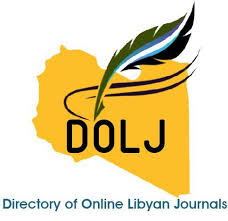Is vitamin D deficiency topical for inflammation?
DOI:
https://doi.org/10.54361/LJMR.16.2B.07Keywords:
vitamin D, immunity, recurrent inflammatory diseases, chronic diseases, autoimmune disorders.Abstract
Currently, vitamin D deficiency has become a common condition in many people all over the world. It is wide spread in different countries including sunny ones. Moreover, a significant number of patients with chronic inflammatory diseases and autoimmune disorders are deficient or insufficient in vitamin D. Purpose of study – To evaluate the incidence of vitamin D deficiency in patients with recurrent and chronic inflammatory diseases and autoimmune disorders. A retrospective analysis of 59 patient’s electronic medical cards with recurrent and chronic inflammatory and autoimmune diseases has been applied for revealing vitamin D insufficiency frequency. We have found that almost all of the patients had non-optimal levels of vitamin D. The study has concluded that Vitamin D deficiency and insufficiency are common in patients with recurrent and chronic inflammatory diseases of the respiratory system, urinary tract, and inflammatory polyarthropaties as well as in patients with autoimmune disorders. This demonstrates the necessity of testing and restoring the level of vitamin D in these groups of patients.
Downloads
References
1. Golyuchenko O.A., Ozerova O.E., Zhiltsov I.V., Skreblo E.I. "The prevalence of vitamin D deficiency and insufficiency in rheumatological patients." Laboratory diagnostics. Eastern Europe 10.3 (2021): 327-334.
2. Atia A., Sundes А. "Epidemiological study of Vitamin D deficiency among Libyan patients." MRIMS Journal of Health Sciences 10.1 (2022): 14.
3. Aisha Nasef, Mabrouk Hassan, Adel El- Taguri and Aisha Ali Nagi. "Prevalence of vitamin D deficiency in central region of Libya." Int. J. of Adv. Res. 8 (2020). 988-994.
4. Holick, Michael F. "Vitamin D deficiency." New England Journal of Medicine 357.3 (2007): 266-281.
5. Bizzaro, Giorgia, "Vitamin D and autoimmune diseases: is vitamin D receptor (VDR) polymorphism the culprit." Isr Med Assoc J 19.7 (2017): 438-443.
6. Taher, Yousef A. "1α, 25-dihydroxyvitamin D3 potentiates the beneficial effects of allergen immunotherapy in a mouse model of allergic asthma: role for IL-10 and TGF-β." The
7. Journal of Immunology 180.8 (2008): 5211-5221.
8. Alkhedaide, Adel Qlayel Hamdan. "Vitamin D3 supplementation improves immune and inflammatory response in vitamin D deficient adults in Taif, Saudi Arabia." Biomed Res 27.4 (2016): 1049-1053.
9. Płudowski, Paweł. "Practical guidelines for the supplementation of vitamin D and the treatment of deficits in Central Europe—recommended vitamin D intakes in the general population and groups at risk of vitamin D deficiency." Endokrynologia Polska 64.4 (2013): 319-327.
10. Rudenka A. V. "Prevalence of hypovitaminosis D in the adult population of the Republic of Belarus". Doklady of the National Academy of Sciences of Belarus 65.5 (2021): 601–607.
Downloads
Published
Issue
Section
License
Copyright (c) 2025 Resident urologist, Hussein Mohamed Ali (Author)

This work is licensed under a Creative Commons Attribution-NonCommercial-NoDerivatives 4.0 International License.
Open Access Policy
Libyan journal of medical Research (LJMR).is an open journal, therefore there are no fees required for downloading any publication from the journal website by authors, readers, and institution.
The journal applies the license of CC BY (a Creative Commons Attribution 4.0 International license). This license allows authors to keep ownership f the copyright of their papers. But this license permits any user to download , print out, extract, reuse, archive, and distribute the article, so long as appropriate credit is given to the authors and the source of the work.
The license ensures that the article will be available as widely as possible and that the article can be included in any scientific archive.
Editorial Policy
The publication of an article in a peer reviewed journal is an essential model for Libyan journal of medical Research (LJMR). It is necessary to agree upon standards of expected ethical behavior for all parties involved in the act of publishing: the author, the journal editorial, the peer reviewer and the publisher.
Any manuscript or substantial parts of it, submitted to the journal must not be under consideration by any other journal. In general, the manuscript should not have already been published in any journal or other citable form, although it may have been deposited on a preprint server. Authors are required to ensure that no material submitted as part of a manuscript infringes existing copyrights, or the rights of a third party.
Authorship Policy
The manuscript authorship should be limited to those who have made a significant contribution and intellectual input to the research submitted to the journal, including design, performance, interpretation of the reported study, and writing the manuscript. All those who have made significant contributions should be listed as co-authors.
Others who have participated in certain substantive aspects of the manuscript but without intellectual input should only be recognized in the acknowledgements section of the manuscript. Also, one of the authors should be selected as the corresponding author to communicate with the journal and approve the final version of the manuscript for publication in the LJMR.
Peer-review Policy
- All the manuscripts submitted to LJMR will be subjected to the double-blinded peer-review process;
- The manuscript will be reviewed by two suitable experts in the respective subject area.
- Reports of all the reviewers will be considered while deciding on acceptance/revision or rejection of a manuscript.
- Editor-In-Chief will make the final decision, based on the reviewer’s comments.
- Editor-In-Chief can ask one or more advisory board members for their suggestions upon a manuscript, before making the final decision.
- Associate editor and review editors provide administrative support to maintain the integrity of the peer-review process.
- In case, authors challenge the editor’s negative decision with suitable arguments, the manuscript can be sent to one more reviewer and the final decision will be made based upon his recommendations.














